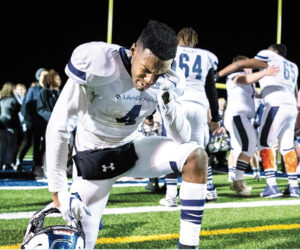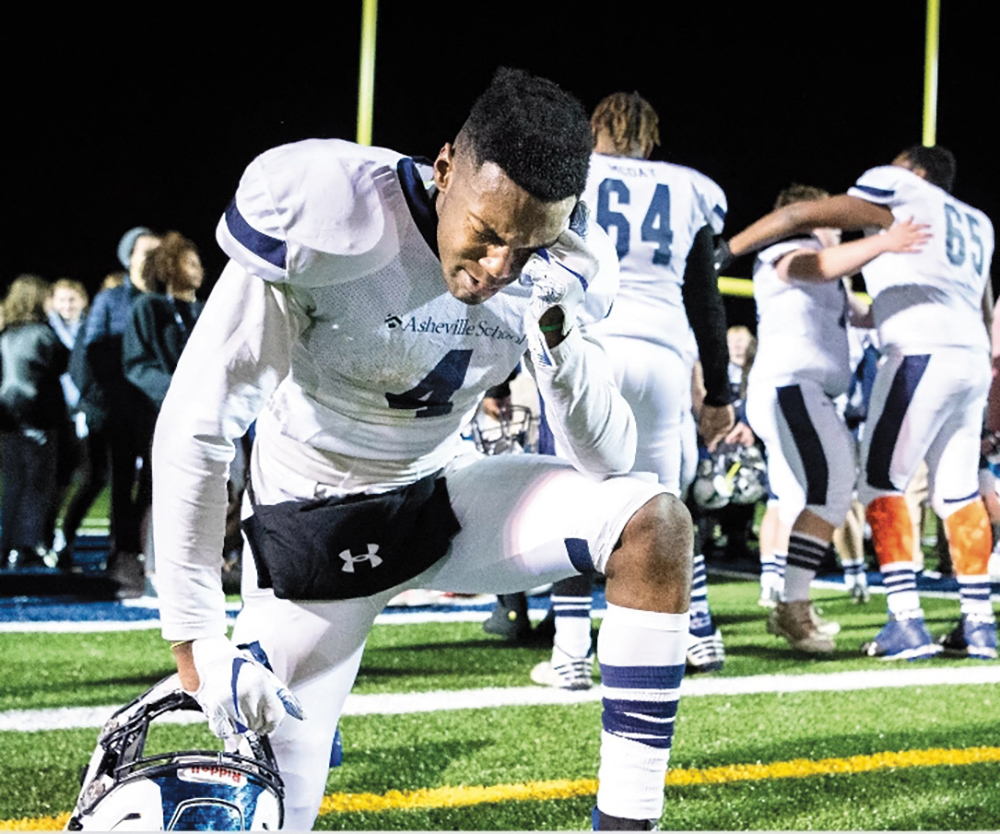The Evolution Of The Words, “Good Game”
By Eric Conklin
 It was a cold day on Nov. 10. It was a Saturday, and I was filming a high-school football game between Millville High School and Shawnee High School. The wind chill had packed the bleachers as much as the students and parents did.
It was a cold day on Nov. 10. It was a Saturday, and I was filming a high-school football game between Millville High School and Shawnee High School. The wind chill had packed the bleachers as much as the students and parents did.
It was the most exciting game I had filmed this season. Millville lost 28-26, after scoring a touchdown with about 30 seconds left in the game and failing to convert a 2-point-conversion and an onsides kick.
After the game, I was walking toward the exit when I walked passed a Millville player who was in tears. I had experienced the same emotions after a loss when I was a student-athlete like him.
He was African-American, and just a few inches shorter than me. He wore the number of 20 something, but I can’t remember the exact number. I couldn’t see his face because he was burying the facemask of his helment onto a trash can, as he cried. It seemed like he was hiding his face in shame of his team’s performance.
Knowing the feeling of losing a football game before, I wanted to comfort him. I debated with myself if it was an appropriate thing to do, since I technically was at work and wasn’t sure if I was allowed to say anything to player. I decided to go for it, as they say in football.
“Hey, you played a hell of a game today kid,” I said. “You gave them a run for their money and fought until the end. There’s no reason to hang your head because of how well you played. You’re going places kid, trust me.”
 I walked away feeling overcome with pride, that pride even made me shed a tear. What was going through my mind was that I didn’t know who this teenager was. I didn’t know what his home life was like, or if he had one. I didn’t know if he or his parents were indigent for money or food. I didn’t even know if he had parents who would support their child at a sporting event or after it.
I walked away feeling overcome with pride, that pride even made me shed a tear. What was going through my mind was that I didn’t know who this teenager was. I didn’t know what his home life was like, or if he had one. I didn’t know if he or his parents were indigent for money or food. I didn’t even know if he had parents who would support their child at a sporting event or after it.
I’ve experienced how supporting someone evolves with age. We may not realize it, but statements to our children like the one I said to the young man from Millville are only the first stage. Eventually, “good game” turns into, “You’ll find a job, you’ll straighten your finances out, or your life will get better.”
Sometimes strangers we encounter in life are the ones that need the encouragement from us bystanders the most. We don’t have to know what their background is or whether they’re rich or poor. We just have to be willing to reach out to someone else, because the positivity we unfurl maybe be the only positivity a person gets in their daily life.
We all encounter adversity in our lives, and sometimes we need someone to embrace us, and tell us, “Hey, you played a good game.”
Eric is a graduate of Rowan University, and has a passion for radio and journalism.







One Response
Nice article Eric. You advocate the importance of “reaching out,” something we need to do more of. One never knows the impact a supportive word or two can have or how far it will travel in a person’s life.